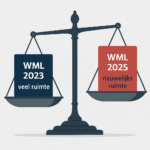For many Polish employees, Easter (Wielkanoc) is one of the most important moments of the year. It is a celebration full of meaning, tradition and family time. But it also involves a lot of creativity and fun - from decorated eggs to 'wet' pranks on Easter Monday. In this blog, you can read about what makes Easter in Poland so special.
It begins with Palm Sunday
The celebration begins as early as a week before Easter, on Palm Sunday. Instead of real palm leaves, people in Poland make colourful 'palms' from willow branches, dried flowers and ribbons. These are blessed in church and symbolise Jesus' entry into Jerusalem. It is a festive start to the Holy Week.
Real Easter art: the pisanki
In the days before Easter, many Polish families get to work decorating eggs, aka pisanki called. These are hard-boiled eggs that are hand-painted in beautiful patterns and colours. Each Polish region has its own style. Making pisanki is a cosy family tradition and the eggs symbolise new life.
The Easter basket (święconka)
Retrieved from Silent Saturday families bring a special basket to church: the święconka. In it are symbolic food items such as painted eggs, bread, sausage, salt, horseradish and a small lamb (often made of butter or sugar). The basket is blessed, and on Easter Sunday food is shared during the traditional breakfast.
Easter Sunday: at the table together
On Easter Sunday, the day begins with a sumptuous breakfast. Beforehand, everyone shares pieces of the blessed egg, wishing each other health and happiness. This is followed by a festive meal with typical Polish dishes such as white sausage, sour rye soup (żurek), various egg dishes and sweets such as mazurek and babka (Easter cake).
Easter egg hunt
In recent years, Poland has also seen the Easter egg search become popular, especially among families with young children. Chocolate eggs are hidden in the house or garden - and it is a fun way to celebrate Easter with the whole family.
Easter Monday: Śmigus-Dyngus
The Monday after Easter is called in Poland Śmigus-Dyngus or Wet Monday. On this day, the tradition is for people to wet each other with water. Especially young people and children participate in this. It is meant as a joke, but it also has a symbolic meaning: it is said to bring good luck and a fresh start to spring. Water guns, bottles or buckets - everything is used!
What does this mean for the workplace?
For Polish employees, Easter is an important cultural and family moment. It is good to know that:
-
Many people like to have time off around this period, especially if they want to visit relatives in Poland.
-
Easter is not only about religion, but also about being together, traditions and relaxation.
-
A small gesture - like saying "Wesołych Świąt!" (Happy Easter) say - can mean a lot.
Are you looking for work where you have a lot of time off (44.5 days a year!) and can therefore take a nice week off around Easter, among other times? Then check out this vacancy: Order picker Deventer 3-shift | Twente Personeelsdiensten Wierden



